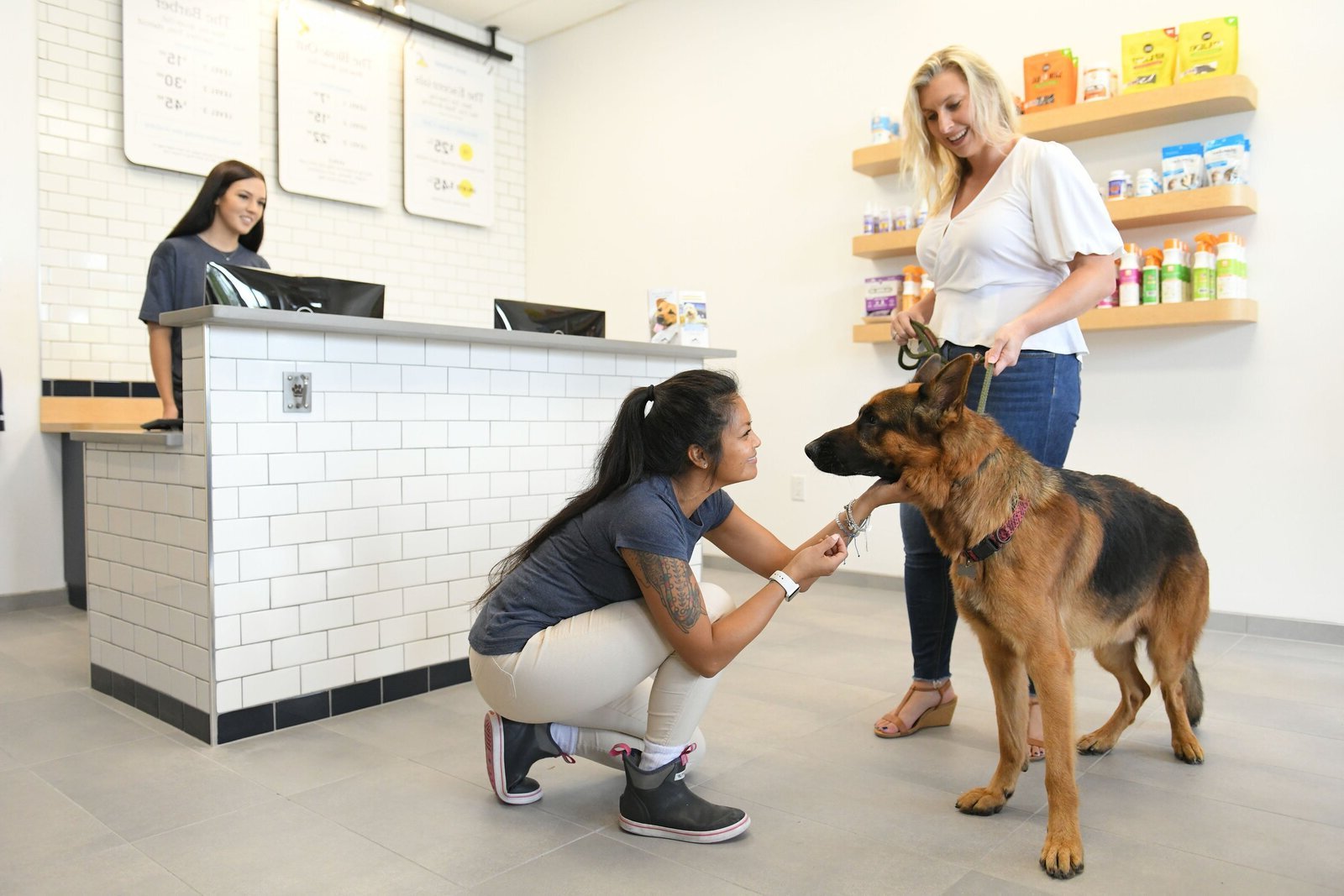
Ever wondered how to keep your dog in tip-top shape? Understanding dog health is crucial for ensuring your furry friend lives a long, happy life. From diet to exercise, vaccinations to regular vet check-ups, there are many aspects to consider. Dogs, like humans, need a balanced diet rich in nutrients. Regular exercise keeps them fit and mentally stimulated. Vaccinations protect them from harmful diseases. Regular vet visits help catch potential issues early. By staying informed about these key areas, you can provide the best care for your canine companion. Ready to dive into 28 essential facts about dog health? Let's get started!
Key Takeaways:
- Regular vet visits, balanced diet, and exercise are crucial for keeping dogs healthy. Look out for signs of illness and prioritize mental well-being to ensure your furry friend lives a long, happy life.
- Preventative care, proper nutrition, and mental stimulation are key to a healthy, happy dog. Stay vigilant for signs of illness and prioritize your furry friend's well-being for a fulfilling life together.
Understanding Dog Health
Dogs are more than pets; they're family. Keeping them healthy ensures they live long, happy lives. Here are some essential facts about dog health.
-
Regular Vet Visits: Dogs need annual check-ups. These visits help catch potential health issues early.
-
Vaccinations: Vaccines protect dogs from serious diseases like rabies and parvovirus. Keeping vaccinations up-to-date is crucial.
-
Balanced Diet: A nutritious diet supports overall health. Dogs need a mix of proteins, fats, and carbohydrates.
-
Hydration: Fresh water should always be available. Dehydration can lead to severe health problems.
-
Exercise: Regular physical activity keeps dogs fit and prevents obesity. It also helps with mental stimulation.
Common Health Issues
Dogs can face various health challenges. Knowing these can help in early detection and treatment.
-
Dental Disease: Poor dental hygiene can lead to infections and tooth loss. Regular brushing and dental check-ups are essential.
-
Obesity: Overweight dogs are at risk for diabetes, heart disease, and joint problems. Monitoring their weight is important.
-
Allergies: Dogs can be allergic to food, pollen, or fleas. Symptoms include itching, redness, and ear infections.
-
Arthritis: Older dogs often suffer from arthritis. Symptoms include limping and difficulty moving.
-
Heartworm: This parasite is transmitted by mosquitoes. Preventative medication is key to avoiding heartworm disease.
Nutrition and Diet
What dogs eat directly impacts their health. A well-balanced diet is fundamental.
-
Protein: Essential for muscle growth and repair. Meat, fish, and eggs are good sources.
-
Fats: Provide energy and support cell function. Fish oil and chicken fat are beneficial.
-
Carbohydrates: Offer energy and aid digestion. Whole grains and vegetables are excellent choices.
-
Vitamins and Minerals: Necessary for various bodily functions. Ensure their diet includes a variety of fruits and vegetables.
-
Avoid Toxic Foods: Some human foods are toxic to dogs. Chocolate, grapes, and onions should be avoided.
Preventative Care
Preventative measures can save your dog from many health issues.
-
Flea and Tick Prevention: These pests can cause serious health problems. Regular treatments are necessary.
-
Spaying and Neutering: Helps prevent certain cancers and reduces the number of unwanted pets.
-
Regular Grooming: Keeps their coat healthy and reduces the risk of skin infections. It also helps in spotting any abnormalities early.
-
Ear Cleaning: Prevents ear infections. Use a vet-recommended cleaner.
-
Nail Trimming: Overgrown nails can cause pain and mobility issues. Regular trimming is essential.
Mental Health
Mental well-being is as important as physical health for dogs.
-
Socialization: Helps dogs become well-adjusted and reduces anxiety. Introduce them to different environments and people.
-
Training: Provides mental stimulation and strengthens the bond between you and your dog. Positive reinforcement works best.
-
Playtime: Essential for mental and physical health. Interactive toys and games keep them engaged.
-
Routine: Dogs thrive on routine. Consistent feeding, walking, and sleeping schedules reduce stress.
Signs of Illness
Recognizing signs of illness early can make a big difference in treatment outcomes.
-
Lethargy: Unusual tiredness can indicate various health issues. If your dog is less active than usual, consult a vet.
-
Loss of Appetite: Can be a sign of illness or dental problems. Monitor their eating habits closely.
-
Vomiting and Diarrhea: Occasional vomiting or diarrhea is normal, but frequent episodes require veterinary attention.
-
Changes in Behavior: Sudden aggression, anxiety, or withdrawal can signal health problems. Always investigate behavioral changes.
Keeping Your Dog Healthy
Ensuring your dog stays healthy involves more than just regular vet visits. Proper nutrition, exercise, and mental stimulation play huge roles. A balanced diet tailored to your dog's breed, age, and size can prevent many health issues. Regular exercise keeps their weight in check and strengthens muscles and joints. Mental stimulation, like puzzle toys or training sessions, keeps their minds sharp and reduces anxiety.
Vaccinations and preventative care are crucial. They protect against common diseases and parasites. Regular grooming, including brushing and nail trimming, helps maintain skin and coat health. Don't forget dental care; brushing your dog's teeth can prevent gum disease and bad breath.
Lastly, always be observant. Changes in behavior, appetite, or energy levels can signal health problems. Early detection often leads to better outcomes. By taking these steps, you'll help your furry friend live a long, happy life.
Frequently Asked Questions
Was this page helpful?
Our commitment to delivering trustworthy and engaging content is at the heart of what we do. Each fact on our site is contributed by real users like you, bringing a wealth of diverse insights and information. To ensure the highest standards of accuracy and reliability, our dedicated editors meticulously review each submission. This process guarantees that the facts we share are not only fascinating but also credible. Trust in our commitment to quality and authenticity as you explore and learn with us.
